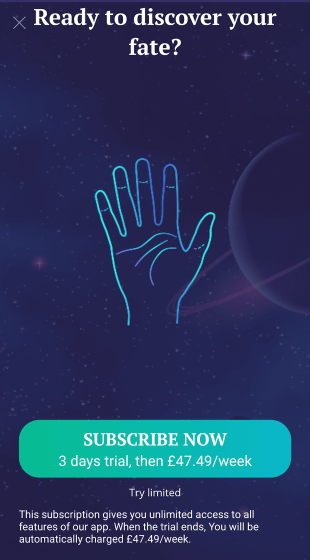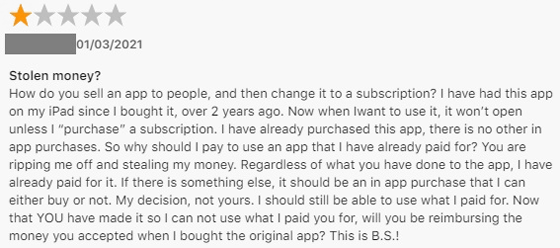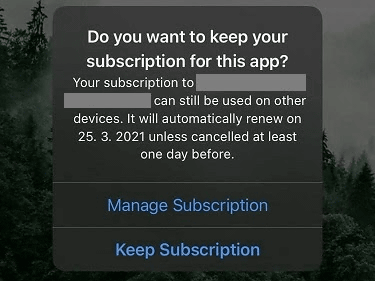Over 44 billion yen is earned by fraudulent apps that 'continue to charge secretly even after deleting the app' on the App Store and Google Play

Malware apps that gather people in free trials and secretly charge a flat-rate usage fee even after the app is deleted are called 'fleeceware', but a new survey shows a total of 204 fleeces from the App Store and Google Play. The ware was discovered and turned out to have earned a total of $ 400 million.
Fleeceware Apps On Mobile App Stores | Avast
According to a researcher at Avast, which develops antivirus software, a total of 204 fleecewares have been downloaded more than 1 billion times, earning more than 44 billion yen. Some fleece wear earns $ 3432 per user annually.
Various types of fleeceware have been discovered, including musical instruments, palmistry, image editing, camera filters, QR code readers, PDF readers, and slime simulators. These apps aren't problematic in their functionality, but they're unusually expensive compared to similar apps, and researchers say they don't 'want to use them for a high price.'
Below is the actual fleece wear. This is a palmistry app ...

When you launch the app, you will see 'After a 3-day free trial, it will be £ 47.49 a week', indicating that an unusually high subscription service is being offered. After uninstalling such apps, they will continue to charge you until you cancel your subscription from the app store.

Researchers say that many of the apps found earned $ 4-12 per week and $ 208-624 per year. I am.
In addition, these apps are not considered malware and are offered on the App Store and Google Play, and are actively advertised on Facebook, Instagram, Snapchat, TikTok, and more. Many are targeting young people, and SNS seems to play a major role in spreading.

Some app reviews have a one-star rating that points out that it's fleece wear.

Avast has reported the findings to Google and Apple. While the subscription model itself is essential to supporting developers, researchers say fraudulent payments should be cracked down.
Researchers also argue that one of the solutions is to 'include the option to cancel the subscription when uninstalling an app that adopts the subscription model.' In this regard, both Apple and Google are displaying warnings and notifications regarding subscriptions to apps to be uninstalled.

And another solution is to 'after the free trial is over, the app will be stopped until the user pays the required fee'. Researchers also say that clarifying in-app purchases and prominently displaying the prices they may pay can also help users determine the adequacy of app prices.
To avoid charging fleece a lot of money, Avast encourages regular users to note the following:
・ Beware of free trials of less than a week.
・ Because important information may be written in detail, read the description about 'in-app purchase' especially carefully.
· Fleeceware can create hype that looks better than the actual product, and often it has diffusive power. You should be careful about widely spread advertisements.
・ Search for similar apps and check the appropriate price.
-Protect payment methods with biometrics and passwords to prevent accidental subscriptions by children.
• Discuss the dangers of fleecewear with your family.
Related Posts:







